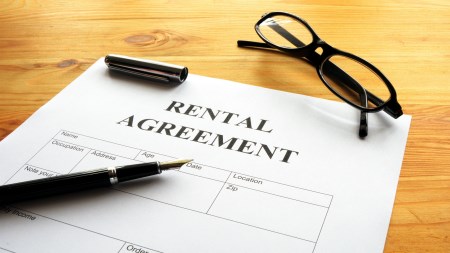Arm yourself with these insider tips from a property professional and improve your chances of securing that dream rental.
According to Grant Rea, Rental Specialist at RE/MAX Living, these are the things that tenants should be aware off.
1. You have loads of competition!
Particularly in coastal cities, the demand for rentals is astronomical during the seasonal periods from November to March and this means that the number of people seeking a rental property peaks to staggering numbers. “As a rental agent, I can often have hundreds of responses from online advertising and it becomes a logistical nightmare communicating with each respondent and methodically scheduling individual viewings for prospects,” says Rea. “It stands to reason then that the average busy rental agent would schedule bulk viewings. Although these are not ideal, if you are an exemplary candidate with all your supporting documents and a good attitude in tow, then you should be in the running to be considered. Remember that with the sheer number of prospective tenants seeking rentals, it becomes near impossible to return every call, respond to every email and to personally take out individual tenants to view.”
2. Have patience when you have applied
Rea says that once you have applied, exercising patience may be difficult as you would like to plan your life and there will be a measure of excitement. However, nagging your rental agent for an answer may be counterproductive as they may see this as a sign of things to come in the tenancy, which is effectively a year long relationship. If you have not had a positive response within a day or two, a casual text message or email enquiry about the process is acceptable. “Remember many agents cannot make the decision without first adequately screening the applicant and then obtaining approval from a landlord,” he advises.
3. Don’t expect perfection
When you finally move into a property, and it is not in a new development, it is best to temper your expectations about the property. “When you rent an older rental property, the obligation of the landlord is simply to offer the property ‘reasonably fit for the purpose for which it has been let’ and habitable for you to reasonably enjoy,” says Rea. He explains that what this means is that the landlord must ensure that:
Doors and windows can close and lock
Electrical accessories like lights and plugs are functioning
That there is hot water
That the property is reasonably clean and free of pests
Sanitary ware and plumbing function reasonably
Reasonable ongoing maintenance to ensure the property remains habitable
Landlords are NOT obliged to:
Offer new carpets and newly painted walls
Offer any alarm system or added security
Offer curtains or blinds (unless previously agreed to in the lease)
Offer to repair anything on the property that does not hinder reasonable enjoyment of the property
According to Rea, the incoming inspection serves only to record the state of repair of the property at the commencement of the lease and does not place any onus on the landlord to remedy any of these. “Just because you received a property dirty, it does not mean that you can hand it back dirty after the tenancy has concluded. This is because you have had the benefit of using the property during the year and the right thing to do would be ensuring it is returned clean,” says Rea.
4. This is a give-and-take relationship
Rental agents are people too and have to be the intermediary between tenant and landlord - often not easy shoes to fill. It is prudent to keep your rental agent on your side by being flexible and reasonable during the tenancy, advises Rea. He notes that emails and texts can often be misconstrued and many assumptions made about their intent. If the relationship between you and the agent deteriorates it may be helpful to meet in person to discuss the matter cordially. If you find maintenance is not being done and you feel unfairly treated, make a video of the maintenance item and send this to the agent. Ensure you keep things amicable and make a good record of communications. “Failing any resolution, approaching the Rental Housing Tribunal or legal assistance should be the last resort. Keeping your side of the deal in the terms of the lease, as well as being reasonable and transparent with your rental agent will ensure a good reference in the end, and will aid your cause when you decide to renew your lease,” Rea concludes.



